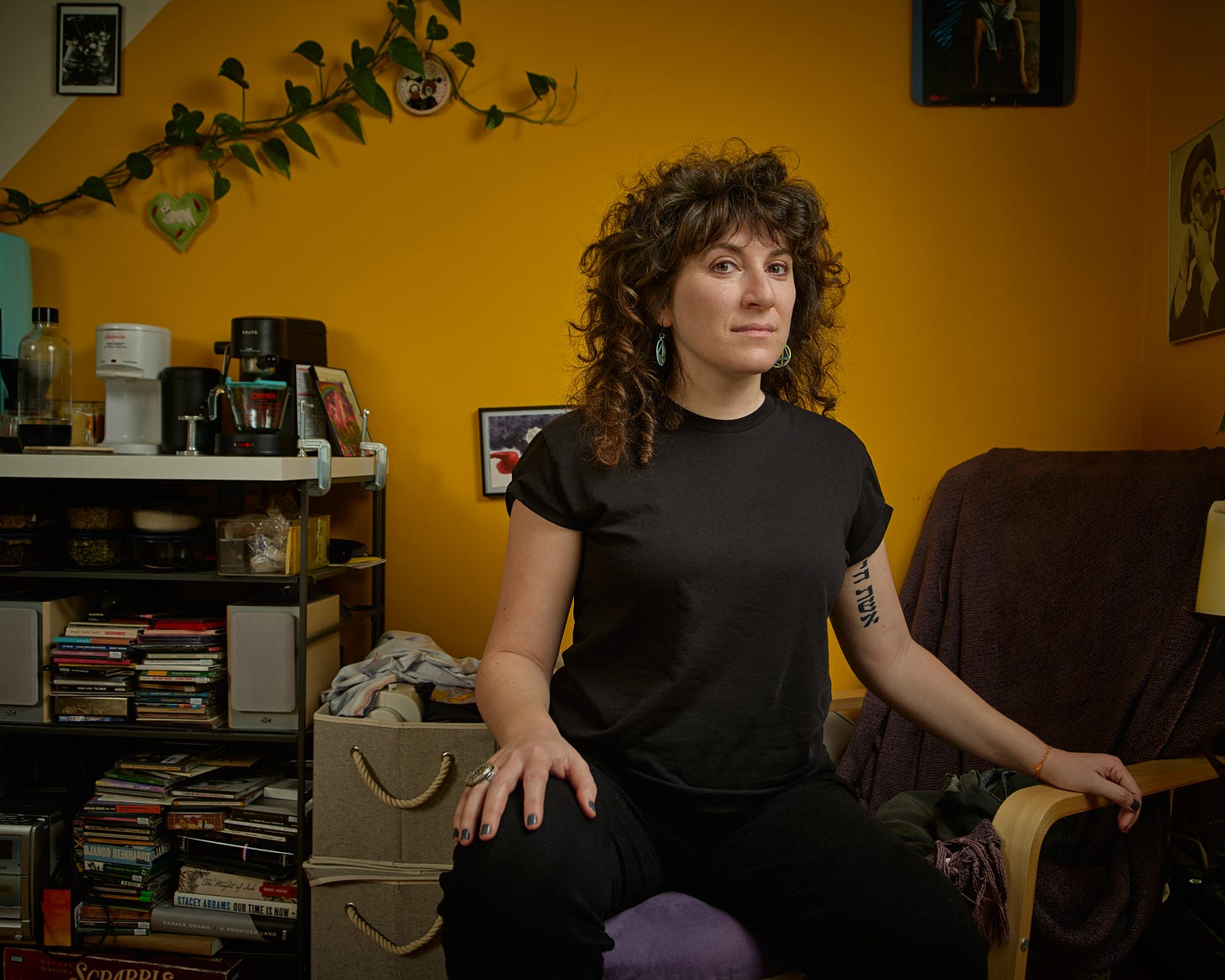Lainie Fefferman's midrash reverberates... "Hineni"
The experimental composer's album culminates years of spiritual pondering
Following the release of her debut album "White Fire," in September 2023, experimental composer Lainie Fefferman found herself finishing another album not even a year later. "Here I Am" is an experimental electronic album that is the culmination of over a decade of the composer's musical and spiritual exploration. It was released in April 2024 on New Focus Recordings.
A(-)religious beginning
In 2009, Lainie Fefferman was in grad school for music composition. Fresh into Barack Obama's first term in office, two intersecting discussions caught Fefferman's attention in the news. Over the previous years, gay marriage had begun to be legalized on the state level, starting in Massachusetts and Connecticut. A debate over its federal legality was becoming a more practical hot-button issue. As well, conspiracy theories surrounding the nominally Christian Obama's supposed Muslim faith as well as a growing popularity of atheism and the increase in religious "nones" provoked many right-wing pundits into putting their faith front and center in public discourse.
These discussions had many right-wing religious pundits arguing against the legalization of gay marriage based on the Old Testament and Levitical religious scripture. Fefferman notes that many of her peers fit into the skeptical atheist trend of the time, but ironically for her, who grew up understanding herself as a secular Jew, spirituality was actually of greater interest. "When I was in high school in college, it would have been easier to tell my friends I'm a Wiccan," said Fefferman, reflecting on the skepticism towards institutional religions at the time.
Despite this, the cynical use of religion by political pundits further provoked Fefferman's sincere interest in the topic.
[Lainie Fefferman performs music from her 2023 album “White Fire“]
Here the album is!
Fast forward to 2024 and Fefferman released “Here I Am,“ consisting of 10 different tracks touching on different stories and aspects of the Torah she’d been pondering for years. Fefferman describes the album as having three different aspects of scripture, “three buckets“ as she puts it, that it draws upon. The first "bucket" as Fefferman describes it has to do with the more difficult to stomach aspects of scripture.
"I really thought that I'm gonna try and emphasize the crap out of these stories. I just want to hate it, but I'm gonna try so hard to empathize with every different person in this story. That's Lot's daughters, that's a lot of Leviticus and also the Binding of Isaac. Even Moses' civil war that killed 1000s of Jews. You know, I'm gonna try real hard to think what I would do if I were this person. How do I empathize with this?" — Lainie Fefferman
The first more visceral bucket gives way to a second bucket of stories Fefferman is more unabashedly enamored by. She mentions Abraham's bargain with God on behalf of the citizens of Sodom.
"The impudence of Abraham bargaining with God. To tell God 'you're amazing, you know, better than me, for real, but 40 really is the same as 30, right?' I really think of chutzpah; like that is the origin story of chutzpah. I don't know if it's the combination of impudence and righteousness, but also the pragmatism and wileyness. I feel like that's my Judaism, like it's not taking up the sword and battling the enemies." — Lainie Fefferman
The final bucket for Fefferman is more unexpected. It includes much of the Book of Numbers and Leviticus and the dry way much of them list sacrificial processes and censuses of able-bodied men. For Fefferman, however, there is real emotional power in the fact that people cared enough to record these things. Pivoting to the music, it reminds her of one of her greatest musical inspirations.
"It's important, but it's also sort of like sorbet. This has been the tradition of Bang on a Can list pieces. like 'Lost Objects' or 'Carbon Copy Building.' We're just gonna make a song out of a list. There's power in the sense of motion and repetitiveness, but ultimately, it's still not quite sorbet, but it gives you a bit of a rest to just enjoy the poetry and the repetition." — Lainie Fefferman
Music to be to
Stylistically the music is varied, going off in a number of different directions in service of these different stories Fefferman was evoking. There are bluesy sections, melismatic choral notes, minimalist inspirations and more. Fefferman excitedly recounted the list of wonderful collaborators whose varied skills and backgrounds helped to inspire and form the album into what it would become. This included the new music ensemble TRANSIT and a number of vocalists — Martha Cluver, Melissa Hughes, Caroline Shaw, Charlotte Mundy and Meaghan Burke.
"Here I Am", much like any worth-its-while religious text, blurs the lines between the beautiful, the ethereal, the harsh and the confusing, yet somehow makes it through with a cohesive experience that knows what is — that it's there. "It's not easy listening…it's tricky," Fefferman notes. Tricky or not, her album is an astounding midrash for these core texts in the Jewish community, giving a fresh sonic interpretation on Judaism from an unlikely student of religion.





